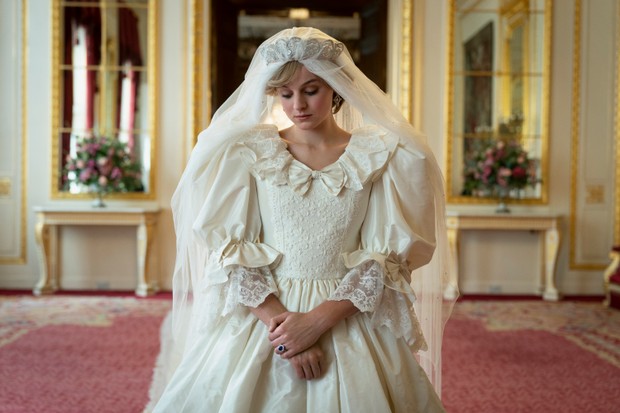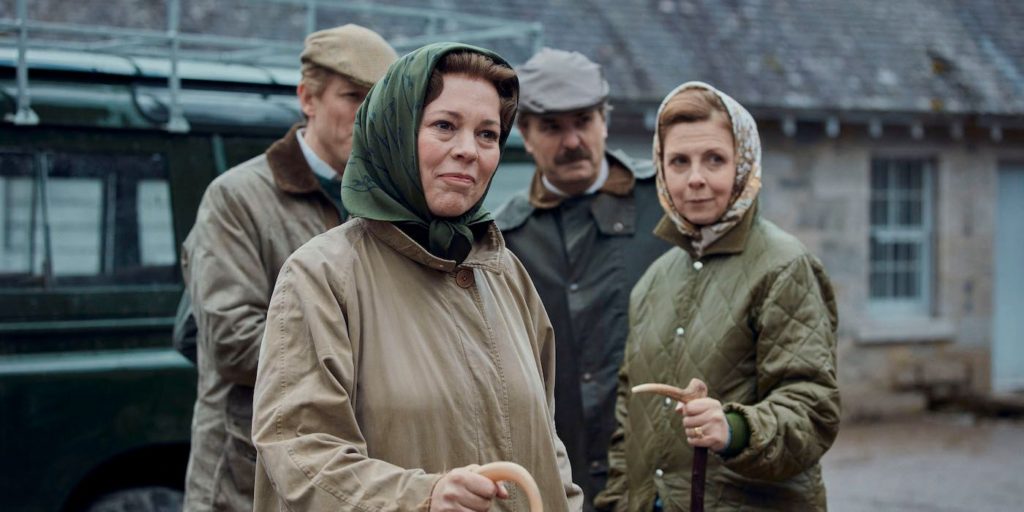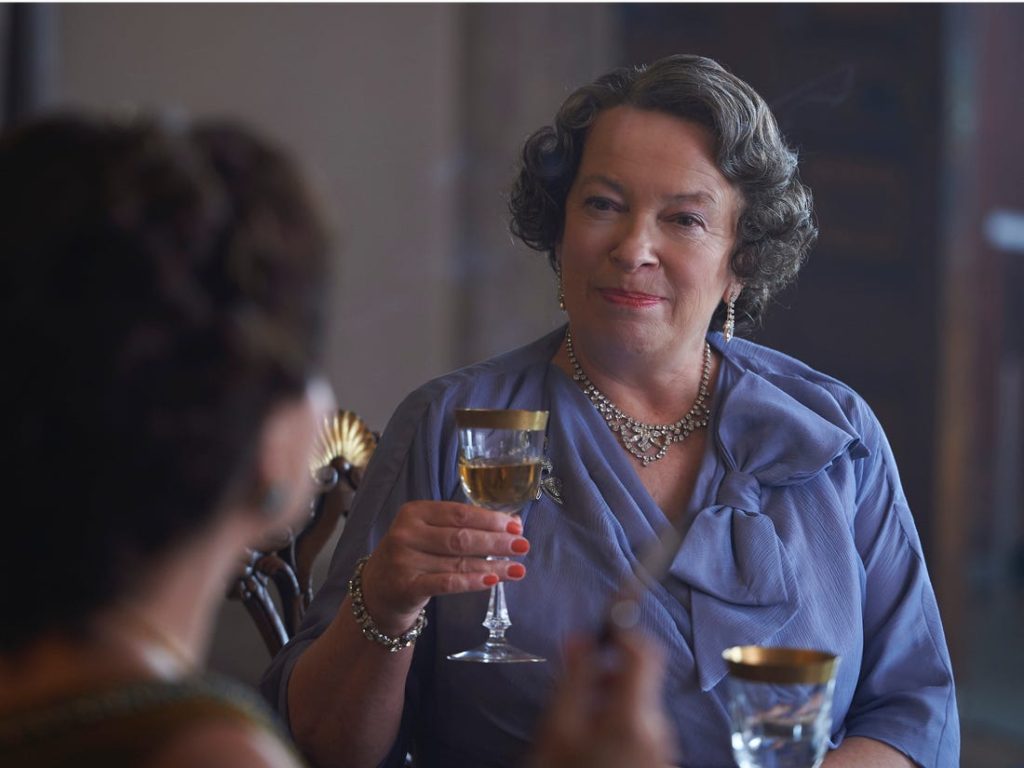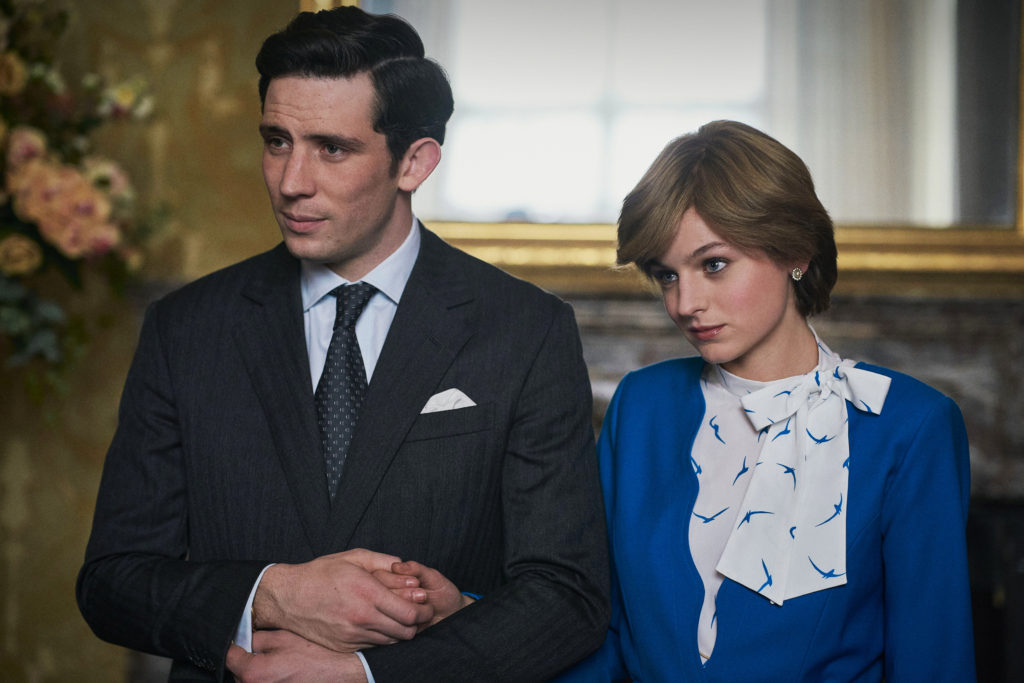
I’m not gonna lie. The Crown is one of the best things to hit screens in a generation.
I was hooked within minutes of it “dropping” in 2016. Season one was almost flawless. Its successor gave a Royal history geek almost everything they could wish for. And, following a shaky third series, season four saw the show rebound with a right-royal gusto.
But there are big problems.
With historical fiction, the clue is in the name. It does not need to follow all the facts. Those that know a great deal about the period must turn a blind eye to poetic license and dramatic liberties.
But there must be some boundaries. When scriptwriters entirely distort the character or reputation of a real human being, they have gone beyond what is acceptable. This applies to dramatizations of the medieval era. But it has a special importance when the people in question are still alive.
Here are just four of the occasions where the Crown season four crossed the line.

- The Balmoral tests
In the second episode, the newly elected Margaret Thatcher and her husband Dennis travel to Balmoral to spend time as the guests of the Queen. Here they are subjected to the “Balmoral tests”. This series of secret challenges allows the Royal family to judge whether a newcomer fits in with their way of life.
In the episode, the Thatchers fail spectacularly. Being from more humble stock, Margaret is ignorant of upper-class country life. She turns up in the wrong kit, over-dresses for pre-dinner drinks and is unfamiliar with the parlour games the Royals revel in. Rather than help Margaret address her “shortcomings” the Royal family delight at her ignorance. The deer hunt, it would seem, is not the only blood sport they excel at.
What rot.
There’s no doubt that the two women were from radically different backgrounds. The show’s creators had every right to draw attention to that. And that’s hard to do visually. Both spoke with a posh voice and wore expensive clothes. Stressing the difference in custom and etiquette was, in some ways, a clever device for emphasising the difference in upbringing.
But it was exaggerated almost to the point of caricature. Thatcher did not just step out of her father’s humble shop in Grantham and walk into Downing Street. She had studied at Oxford, sat as an MP for twenty years and served as a cabinet minister. She was not totally ignorant of the upper classes.
Yes, Thatcher probably didn’t look forward to her trips to Balmoral. Her authorised biographer, Charles Moore, wrote that she ‘endured’ rather than ‘enjoyed’ the visits. And she may, on one occasion, have brought the wrong shoes. But to suggest that her entire first trip was an act of sabotage by the Royal family flies in the face of the widespread testimony that they go to some length to ensure people are comfortable in their presence.
After leaving office, Margaret Thatcher spoke lavishly about the Queen’s humanity. And what, specifically, did the former Prime Minister praise in interview after interview? The Queen’s ability to “put people at their ease.”

2. The callous Queen Mother and her hidden nieces
I haven’t enjoyed the portrayal of Queen Elizabeth, the Queen Mother in any of the Crown’s four seasons. The former Elizabeth Bowes-Lyon is well attested to have been warm, bubbly and fun loving. That’s yet to come across.
But in episode seven, her portrayal goes from cold to outright cruel. Princess Margaret discovers that her maternal cousins, long thought dead, were secretly living in a mental institution. Margaret later confronts her mother. Under duress, the dowager Queen reveals that her nieces were hidden from view upon George VI and Elizabeth ascending the throne. It could never be known that there was mental instability within her family. Such knowledge would have threatened the security of the monarchy.
Seriously?
Fortunately, historian Gareth Russell has stepped up to the plate. In a compelling facebook post he points out that the dates simply don’t add up. The Queen Mother became Queen in 1936. Her nieces were not placed into an institution until 1941.
Russell also points out that Elizabeth was from a large family. Her brother was much older. She probably believed that her nieces had died and had no idea they were still alive until she was in her 80s. Once it was brought to her attention, she sent money to the home where they lived.
Changing facts can be acceptable in fiction. Sometimes it’s necessary to make the narrative flow. But maligning a real person in the process can never be acceptable.
3. Thatcher asking the Queen to dissolve Parliament in 1990
Before the season aired, I was worried about the portrayal of Thatcher’s relationship with the Queen. But, barring the Balmoral tests, it was much better presented than I expected.
The two women were the same age, but from different walks of life. They didn’t particularly understand one another. But there was mutual respect.
But I was taken aback when, during her conflict with her own MPs, Margaret Thatcher asked the Queen to dissolve Parliament. In the UK, dissolving Parliament (which prior to 2010 was something that happened under the Royal prerogative but at the request of the Prime Minister) means calling a general election. In a general election, all MPs, and therefore the Prime Minister, is up for re-election.
However, I think the series writers were confusing this with “proroguing Parliament.” This is when Parliament ceases to sit until the beginning of its new session but the government remains in place. It is implied in the series, that without trouble from her pesky MPs, Thatcher could survive.
It is not credible that Thatcher would try and drag the Queen into an internal party dispute. Besides, Thatcher was facing an election for leadership of the Conservative Party. Getting rid of Parliament would have been no help to her. It was not a Parliamentary process.
In the context of fiction this is probably acceptable. It shouldn’t really be on my list. But it irked me. So it’s staying put.

4. The relationship between Charles and Diana
As someone that grew up in the 80s and 90s, I have heard every rumour about the relationship of the Prince and Princess of Wales that there is to tell. In reality, only a handful of people ever knew the truth of it.
The Crown made the creative decision to base the series on the often-rumoured premise that Charles never really ended his relationship with Camilla. This may be true. Or it might be, as others have claimed, that he did not reignite the affair until Diana had already started committing adultery. We just don’t know.
Fiction does not have footnotes. I understand that they had to go one way or another. And some of the portrayal is clearly based on the legendary tapes that Diana indirectly supplied to Andrew Morton.
But at the very least, it’s still only one side of the story. Much more effort should have been made to show balance. Diana’s own family have been uneasy with the portrayal of her in the series.
Throughout season four Charles comes across as petulant and unlikeable. Yet, no one is a two-dimensional character. The writers of the Crown cannot know the truth. Greater care, balance and generosity should have been shown.
*
“Oh come on,” I hear you cry. “The Crown is fiction. It’s not their fault if people believe it.”
Yes. And no. The Crown includes encyclopaedic-style facts at the end of episodes. This suggests it is grounded in fact. They refuse to include a disclaimer (which, by the way, are common when shows depict the lives of real people).
And regardless of whether people should believe it, it is clear that people do believe it. Many (including those who are well educated) simply believe that “if it wasn’t true, they wouldn’t be allowed to put it on TV”). Producers know this. The fact it’s “based on truth” is something that adds to the appeal and bolsters viewing figures.
The Crown is brilliant TV. The attention to detail is outstanding. It deserves every award it receives and more besides. But adding a tiny disclaimer would do nothing to diminish its success. And it might do everything to protect real people from a distorted reputation.
Subscribe to our newsletter!
I absolutely LOVED “The Crown”. Just finished watching the last episode of season 4 last night. So now I’m hoping for a Season 5.
Please correct “war of the wales” to “War of the Waleses.” Thank you.
Done.
I loved the crown. But if only half of what was put into the series is true it doesn’t shed a favorable light on the Royal family in my book. I understand pomp and circumstance but not allowing Margaret and Charles to marry the love of their lives would have put the history of this dynasty down a different road. Compared to what went on with the royal family the last 15 years, their marriages would have been a walk in the park.
Thank you for this. One of the parts of my enjoyment of The Crown is googling the actual facts – yes, there are a also some chronological issues, etc, and your post adds to this. The only thing I disagree is your evaluation of Charles in s.4: I did not grow up in the UK, so maybe because of that I thought of him as an unfaithful and poor husband UNTIL I saw The Crown. The series portrays him as unhappy because of his love for Camilla in a way that made me feel sorry for him. Sure, I’m also sorry for Diana, but she seems to be someone who suffered from collateral damage rather than someone faultless and deliberately mistreated by Charles.
Thanks for your comments. Quite a few people have shared the same point – that they think Charles is presented with more balance than I’ve given credit for. I guess it depends what you think the starting point is. I think it’s just hard to like a man that treats his wife the way Diana was treated; and there’s no real evidence to suggest she was treated like that. Which is not to say that their marriage was happy.